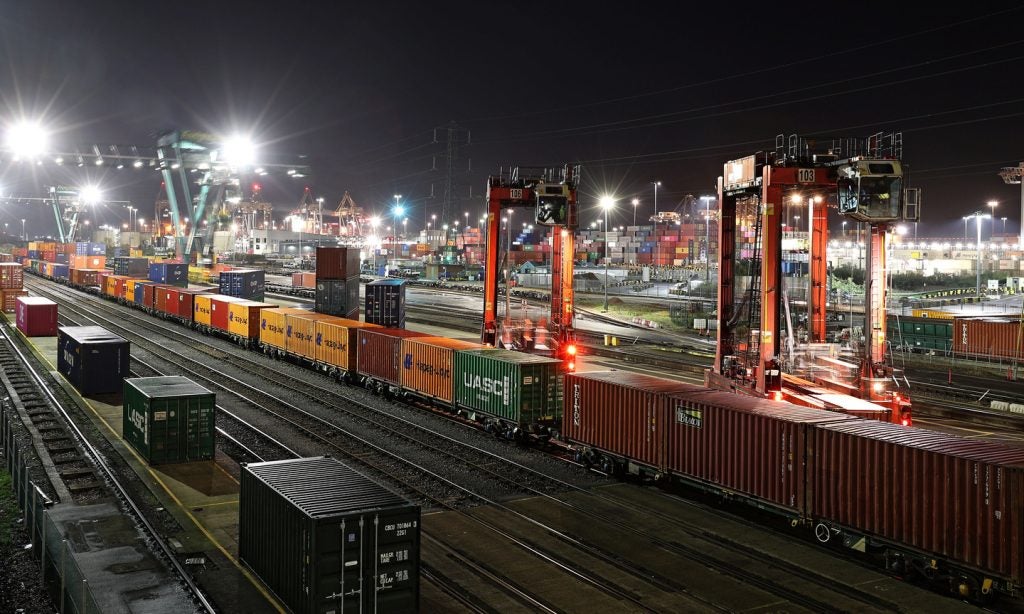Global supply chain solutions provider DP World has revealed a new initiative designed to encourage its customers to use intermodal rail instead of the road when moving imported goods from its ports.
The Modal Shift Programme is part of a wider drive to decarbonise UK supply chains and will issue a £10 per container fee reimbursement for customers who send goods on a rail journey of over 140 miles.
Alternatively, a £70 incentive will be paid to those customers who use rail for a journey less than 140 miles, a greater incentive due to the less obvious financial gains from using rail over shorter distances.
John Trenchard, UK commercial and supply chain director, said: “DP World in the UK has been a market leader supporting our supply chain partners with access to a comprehensive network of rail options to connect our logistics hub to inland locations across the UK.
“However, over the last few years, there has been a gradual decline in the share of rail. Through the Modal Shift Programme we aim to increase the rail share up towards 40% by the end of 2025 – removing an estimated 30,000 tonnes of carbon dioxide from our customers’ onward supply chains.”
The first trial of the programme will be taking place at the company’s logistics hub in Southampton over an initial period of 12 months starting in September 2023.
DP World has consistently invested in rail in recent years as it seeks to achieve its goals of becoming a net-zero organisation by 2050, for example, last year a weekly rail freight service was launched between the company’s Southampton and London Gateway terminals.
The London Gateway port has also recently made steps towards DP World’s sustainability goals as it celebrated the success of a solar energy trial, which saw panels installed on the port’s gatehouse building generate 29.95MWH of electricity.
Rail’s role in the decarbonisation of supply chains and overall travel habits has been boosted by projects such as DP World’s programme and was highlighted in a piece about the National Grid’s role in preparing the UK’s rail network for decarbonisation of Railway Technology earlier this year.









